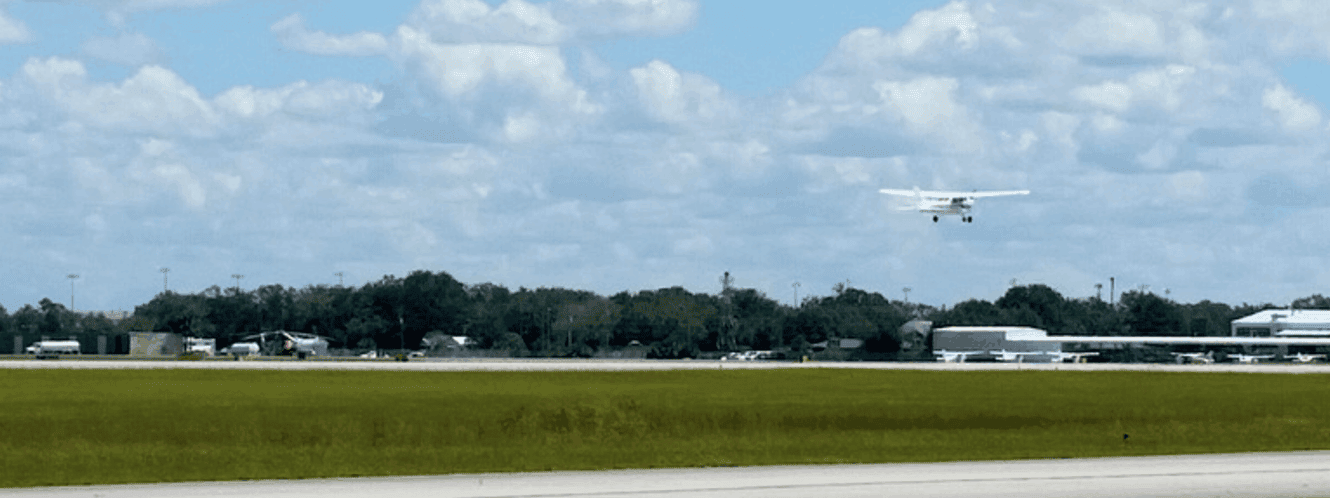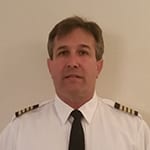Frequently Asked Flight Training Questions

I recently had a chance to sit down with our director of flight training, Rob Becker, and we spoke about some of the most frequently asked questions students have about flight training in general. If you have a question you don’t see answered here, please contact us and we’d be happy to answer it for you!
Robin Frey: Hi Rob, I have put together some flight training questions that are frequently asked by students. I’m hoping you can help me answer them.
Rob Becker: Sure, I will try my best!
Robin Frey: How quickly can a student obtain their private pilot license at AeroStar?
Rob Becker: The minimum flight hours by the FAA is 40 hours, but the industry average is between 55 and 60 hours. If you train 2 to 3 times a week you should finish in 3 to 4 months.
Robin Frey: What usually happens during a typical flight lesson at AeroStar?
Rob Becker: You and the flight instructor will meet for about 15-20 minutes and discuss what training you are going to do during the lesson. Next, you will pre-flight the airplane and then fly and do the lesson. Lessons are generally broken up into 3 types of lessons: 1) Practice in the airport traffic pattern doing take offs and landings 2) Go to a designated practice that is close to the airport area where you will do flight maneuvers such as slow flight, stalls, steep turns, and emergency procedures 3) Cross country and night flights.
Robin Frey: Will a student have just one flight instructor during training or multiple?
Rob Becker: You will be assigned a primary instructor with who you will do most all your training. Occasionally, you may fly with another instructor because your primary instructor may be unavailable due to vacation or sickness. You also will fly once or twice with the Chief Flight Instructor prior to completing your training.
Robin Frey: Do students need to complete a medical examination before they start flight training?
Rob Becker: You do not need to have a medical prior to starting your training but you must have it prior to your first solo flight.
Robin Frey: Will the student need to obtain any kind of special insurance prior to their flight training?
Rob Becker: You do not need to have special insurance for training flights, but if you are renting the airplane to do time building you will be required to obtain additional insurance that we can assist you with getting.
Robin Frey: What are the most important skills you need to be a successful pilot?
Rob Becker: There are no special skills that are required. Male or female, young or old, they have all learned how to fly. The most successful students are the ones that make training a priority and set aside ample time to study prior to and after any lessons taken.
Robin Frey: How soon will a student actually fly the plane or solo?
Rob Becker: You will be handling the plane on your very first lesson. Your first solo will be when you have completed the first phase of training, which is usually around 20 flight hours of training.
Robin Frey: Where will students fly on their cross-country flights?
Rob Becker: You must fly at least 50 nautical miles from your departure location. Common airports that you will fly to would be Ocala, Brooksville, and Crystal River.
Robin Frey: Are students required to submit payment up front or is it pay as you go?
Rob Becker: We do not require money up front, it is pay as you go. You do need to have a credit card on file so that the flight cost can be charged to the card. If you do not have a credit card on file, you will need to keep a balance of $500 on your account that will allow you to have the funds available for your next couple of lessons.
Robin Frey: How far in advance does a student need to schedule their flight lessons?
Rob Becker: If the airplane and instructor are available, the lesson can be reserved at any time, although this is not recommended because that would mean that you the student probably haven’t prepared probably for the lesson. It can be done occasionally, but it should not be the norm.
Robin Frey: Okay and one last question, what would you say is the biggest advantage for students to choose to do their initial flight training with AeroStar?
Rob Becker: When training at the Kissimmee Airport with AeroStar, you can start your practice area maneuvers within just a couple minutes because the practice area is so close. This will save you from having to pay an extra 10-15 minutes of flight time every time you have to go out to the practice area. Training at AeroStar allows you to train with professional instructors who have trained students for many years and have thousands of hours of experience, instead of a school where instructors are brand new to teaching and have zero to very small hour amounts of experience.
Robin Frey: Great answers. Thank you so much for your time Rob, hopefully this has been very insightful for student pilots who are just starting out or shopping around for a Flight School.
Rob Becker: My pleasure!
Rob Becker, our Director of Flight Training has been flight instructing full-time since 2009. Rob holds an ATP, MEL, and SEL license. Rob’s instructor ratings include CFI, CFII, and MEI with Gold Seal. He also has his Ground Instructor and Advanced Instrument Ground Instructor Ratings. He has 4,500 total flight hours and has given over 4,000 hours of instruction. He has also given 1,000 hours of multi-engine instruction.
Rob enjoys taking students on Discovery Flights and introducing students to the world of aviation. Rob has been happily married to his wife Lyn for 29 years and together they have two adult children. Prior to working in aviation, Rob owned a construction company for 26 years.
By: Robin Frey, AeroStar Training Director of Marketing

Rob Becker
